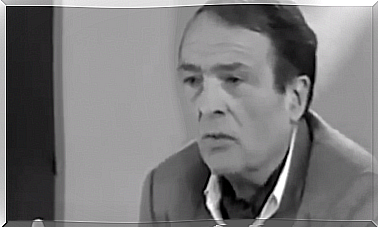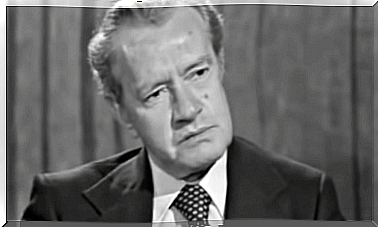I Feel Sorry For Myself: What Can I Do?

“I feel sorry for myself, I feel like I’ve reached a point where my whole life is a failure and I’m worthless.” Many people go through this dangerous spiral of severe psychological exhaustion. At its most dangerous side, self-pity undermines our worth, clouds our mood, and fosters self-sabotage.
While it is true that it is sometimes healthy to feel sorry for ourselves, those who apply this more self-destructive view gradually build up the prison of a mood disorder. Depression, as well as anxiety disorders, have as substrate this devaluation in relation to the being itself.
The root of this self-perception is low self-esteem, added to other variables, such as hopelessness and even learned helplessness. We look at more details below.

Why do I feel sorry for myself?
Insecurity, hopelessness, feeling that we are a fraud, that we have not achieved anything we set out to do… Many of us can see ourselves in the same situation and not know how to get out of this mental universe. Furthermore, this perception is not exclusive to weak personalities, quite the contrary: sometimes we are so tired of being strong that we end up feeling sorry for ourselves.
There is an important fact that we pointed out at the beginning: self-pity has a positive side and a not-so-positive side. Research, such as that carried out at the University of California, indicates that this psychological state can cause a “mental knot” when we fall into a spiral in which factors such as feelings of loneliness, helplessness and high stress end up blocking us completely.
Let’s understand more causes that orchestrate this situation and what we can do about it.
Low self-esteem and feelings of frustration
There are times when we always try to do our best, and still nothing works. Although the difficulties pass, there are times when we have the feeling that bad luck is with us. Furthermore, we tell ourselves that everything we do ends up in the worst possible way.
Low self-esteem, frustration and psychological helplessness are integrated into this approach. In these situations, mental exhaustion can be immense.
It’s time to change the negativity discourse from “I’m useless and I feel sorry for myself” to “I must start seeing things differently.” For this, the best thing is to stop living in the past, in what is already lost, in the mistakes made. This is all part of yesterday, and you are part of the present, the here and now.
- Set new short-term goals and imagine a new you. Think of all those psychological traits you would like to acquire and work on them: security, high self-esteem, dynamism, proactivity…
- Learn problem solving techniques. This is the time to gain self-efficacy and feel that you can face the little daily challenges.
I feel sorry for myself (when the level you set is too high)
“I feel sorry for myself because, in the end, I’m weaker than I thought. Because I feel defeated, because the loneliness and indifference of others hurt me…”. That’s right, another hallmark variable that orchestrates negative self-pity is the one that starts with high demands and intolerance of vulnerability.
We feel compassion for ourselves when all of a sudden everything we’ve done for others isn’t appreciated and the weight of disappointment and even loneliness comes along. This feeling also often arises in those personalities who do not allow themselves to connect with their emotions, limits and weaknesses.
When they finally realize their vulnerability, that feeling of self-pity arises.
We must learn to deal with uncomfortable emotions: disappointment, fallibility, vulnerability… Nobody can carry the weight of the world on their shoulders and be the key that solves all your problems and those of other people. Life is sometimes unfair, people fail us and we too have limits and make mistakes.
Accepting all of these dimensions and embracing our vulnerable ‘I’ will allow us to go through these experiences with more balance.

Concatenated stressful events and neuroticism
The Martin Luther University of Halle-Wittenberg (Germany) conducted a study that revealed something interesting. People who say “I feel sorry for myself” show an unbalanced psychological response to highly stressful events. That is, they face them inappropriately.
Job loss, crises like the current ones, family and financial problems can completely erode your vision of “I”. Likewise, another factor appears according to this work: neuroticism. There are personalities that are more likely to experience negative valence emotions as well as irrational thoughts.
What can we do?
People with a tendency to neuroticism suffer to a greater degree from states of anxiety, constant worry, mood swings, irritability, self-destructive ideas… In these situations, professional support is essential.
Feeling sorry for yourself is the beginning of a downward spiral that can put us in extreme situations. Cognitive-behavioral therapy designed to work these irrational ideas into healthier approaches is the best starting point.
To conclude, one thing to keep in mind is that we can all have this perception at some point in our lives. The one where nothing goes well with us and we become worthy of our self-regulation, our compassion and our pity. It’s okay to embrace our most fallible selves, but only for a while. Then you need to lift it up and strengthen it with courage, infinite love, and eternal trust.









